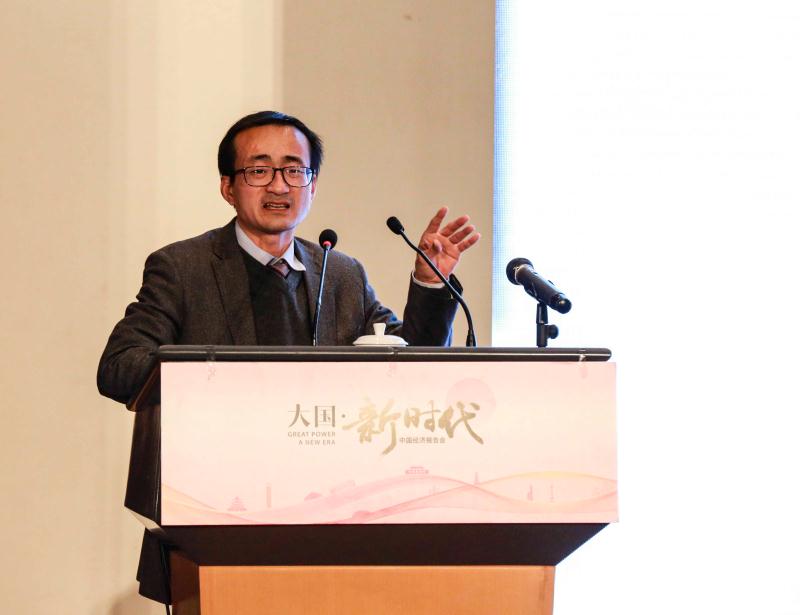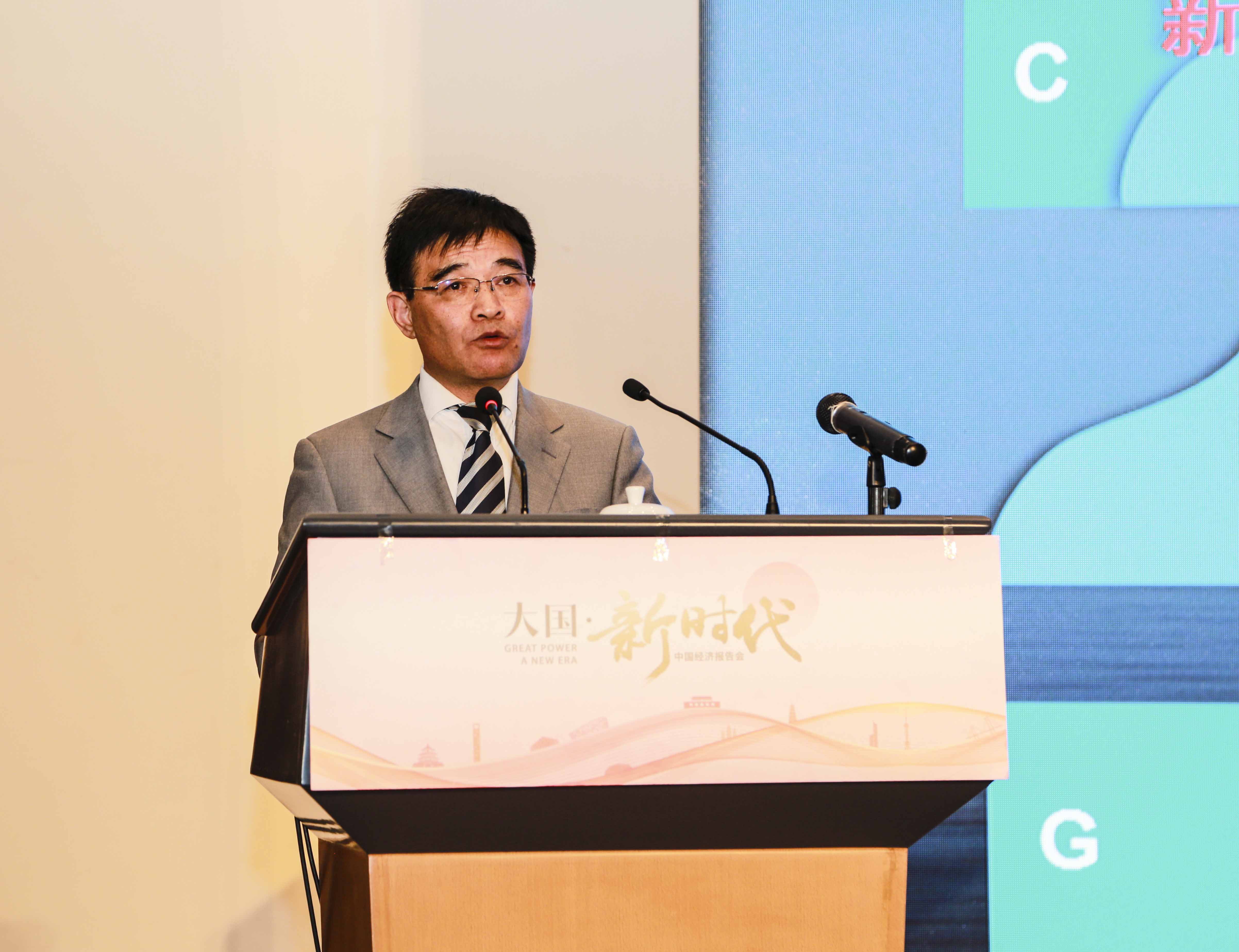 Research Update
Research Update
15
DecemberOn December 6th, the 2nd Session of Great Power • A New Era Lecture Series was held by CNR-China Business Radio, CNR News, and NADS at School of Chinese Classics, RUC. The theme of this lecture is the New Arrangement of Economic System. Prof. Liu Yuanchun, Associate Dean of RUC, Executive Dean of NADS, and Shi Lei, Economics Professor of Fudan University, Director of Public Economics and Policy Studies, attended the lecture and delivered keynote speeches under the themes of Main Tasks of Demand Management in the New Era, and How to Move Across the “Gateway” from High Growth to High Quality Development, respectively.

From Prof. Liu’s point of view, in order to apply the new vision of development and develop a modernized economy, the government could focus on the demands on the macro level: The first is to improve systems and mechanisms for stimulating consumer spending, and leverage the fundamental role of consumption in promoting economic growth. This includes applying supply-side structural reform that match the consumption, releasing capacity of China’s mid to high-end consumption in terms of supply and demand, considering issuing policies to promote mid to high-end consumption corresponded with anti-poverty strategy, enlarging dividend distribution among various types of enterprises, especially dividend distribution of state-own companies, and preventing enterprises’ profits being automatically converted to investment funds, which may cause enterprises savings squeeze consumer funds.
The second is to deepen reform of the investment and financing systems, and enable investment to play a crucial role in improving the supply structure. According to Prof. Liu, the key to ensuring steady growth is to ensure ‘steady investment’, while the policy directions and tools on ‘steady investment’ should be substantially adjusted, among which inducting private capital should be placed in the prior. The induction of private capital could be realized through protecting property, providing new space for capital investment, and decreasing the cost of investment, as well as expanding demand for investing industry. He suggested that in 2018, the government could introduce the policy to induct private capital and comprehensively adjust investing expectations.
Meanwhile, Prof. Liu pointed that the simplification and administration of financial consolidation and regulatory strengthening could not achieve the aim of steady investment. In this sense, the government should notice the importance of gaining the availability of financial support for investment demand ranging from minor enterprises to private enterprises as well as innovative enterprises.

“The development of mobile payment has changed people’s paying behavior, and QR-code consumption may lead to the disappear of thieves. They will not be able to steal mobile phones after quantum communication techniques being improved.” Prof. Shi started with a humorous opening. He pointed out that ‘new economy’ is transforming people’s lifestyle. According to his view, building series of modernized industrial clusters could speed up the growth of new economic sectors under the situation that China’s economy has been transitioning from a phase of rapid growth to a stage of high-quality development, which include modern service industry, new equipment manufacturing, and intelligent manufacturing, etc.
Prof. Shi stressed that supply-side reform plays an important role in crossing the ‘gateway’ of transitioning China’s economy from a phase of rapid growth to a stage of high-quality development. He suggested three ways to apply the reform: the first should take place within government. As the subject of public investment, the government should revise policies and public investment system, adjust the position of goals as well as the macro resource allocation mechanisms. Second, enterprises should change their business philosophy and profit model, namely promoting their credibility, quality and sustainability, improving effectiveness and cutting cost. The last is referring to market and industry. In other words, the market structure should be optimized, and the efficiency of market-based allocation of resources should be improved. The government should also set up an open and fair competition mechanism as well as an optimal supply-demand match mechanism.
Great Power • A New Era Lecture Series was initiated by both CNR-China Business Radio and CNR News and had already finished 10 lectures previously. Experts including officials such as Su Guoxia, head of the Comprehensive Department of the State Council Leading Group Office of Poverty Alleviation and Development, as well as the office’s spokesperson, scholars such as Liu Yuanchun, Han Qingxiang, and Zhang Yansheng have been invited.